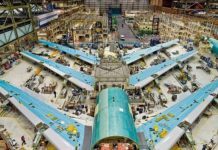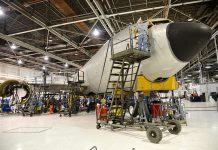Artificial Intelligence (AI) is redefining technological, economic, and societal boundaries, promising major transformations by 2035. From early symbolic AI to today’s physical AI, its applications are revolutionizing sectors like healthcare, education, and energy. As an economic driver expected to contribute $15.7 trillion to the global economy by 2030, AI also raises ethical, social, and professional challenges. To maximize its benefits, international cooperation, robust ethical frameworks, and investments in training are essential. Used wisely, AI is a force capable of uniting technological progress and humanity.
Artificial Intelligence: A Rapid Expansion
AI is experiencing unprecedented growth, reshaping the contours of our societies and economies. From its inception as a scientific concept in the 1950s, AI has made remarkable strides, evolving from automating specific tasks to developing generative systems and now integrating into physical environments. These advances promise significant disruptions by 2035, fundamentally altering professional, economic, and technological realities.
An Accelerated Journey: From Symbolic AI to Physical AI
- Symbolic AI (1950-1990):
In its early days, AI focused primarily on solving logical and mathematical problems. Pioneers like Alan Turing and John McCarthy laid the foundations of AI by creating expert systems capable of simulating human reasoning in specific domains. These systems used predefined rules and decision trees to provide solutions in contexts like medical diagnosis or financial management. However, their reliance on manually coded knowledge made them inflexible and unable to adapt to unforeseen situations. - Machine Learning (1990-2010):
The advent of machine learning brought greater flexibility and performance to AI. Neural networks, inspired by the human brain’s functioning, enabled machines to learn from data rather than being explicitly programmed. This innovation revolutionized areas like image recognition, where machines outperformed humans in accuracy. Applications such as virtual assistants, streaming platform recommendations, and fraud detection systems became possible thanks to this technology. - Generative AI (2010-2020):
Generative AI marked a turning point, demonstrating that machines could not only understand but also create. Generative Adversarial Networks (GANs) and language models like GPT opened new possibilities by generating photorealistic images, coherent texts, and even musical compositions. These systems transformed sectors like marketing, education, and entertainment, while raising questions about intellectual property and ethics. - Physical AI (2020 and beyond):
The integration of AI with robotics has given rise to physical AI, where intelligent machines actively interact with the real world. Robots equipped with advanced sensors and adaptive learning algorithms can navigate complex environments, make real-time decisions, and collaborate with humans. Examples include autonomous vehicles, surgical robots, and automated logistics systems. This advance is set to radically transform many sectors but also raises safety and regulatory concerns.
A Disrupted Future
- Professional Realities:
By 2035, AI will profoundly reshape the professional landscape. Many repetitive or analytical jobs, such as cashiers, insurance agents, or data entry operators, are likely to be replaced by automated systems. However, this transition will also create new opportunities in areas like AI system maintenance, cybersecurity, and ethical analysis.
Creative professions, while impacted by AI’s generative capabilities, will reinvent themselves to leverage this technology. For instance, designers may use AI to explore innovative concepts, while writers might collaborate with language models to enrich their narratives. Workers will need to develop hybrid skills, combining technical expertise with critical thinking, to thrive in this transformed environment.
- Economic Impacts:
AI is poised to become a central driver of global economic growth. Companies that quickly adopt AI to automate processes, enhance efficiency, and personalize customer offerings will gain significant competitive advantages. Estimates suggest that AI could add up to $15.7 trillion to the global economy by 2030.
However, this technological revolution could exacerbate economic inequalities if its benefits are not distributed equitably. Governments will need to implement innovative fiscal policies to redistribute AI-generated wealth while investing heavily in retraining displaced workers.
- Software and Technological Innovations:
AI’s impact on innovation is already evident in key sectors. In medicine, AI-based systems predict diseases before symptoms appear, improving diagnostics and treatments. In education, adaptive learning platforms personalize learning paths to meet individual student needs. AI also contributes to smart energy resource management and combating climate change.
Emerging quantum AI could amplify these advancements by enabling ultrafast computations to solve complex problems, such as material simulation or optimizing transportation networks.
A Level Playing Field: Opportunities for All Nations
The rise of AI presents a unique opportunity to reduce the gap between industrialized and emerging nations. Thanks to accessible open-source tools and cloud platforms, developing countries can adopt AI-based solutions to address local challenges. For example, in Africa, startups use AI-equipped drones to monitor crops and prevent famines.
However, countries’ ability to harness AI depends on their investments in education and training. Governments must encourage technological awareness initiatives and foster partnerships with innovative companies to strengthen their digital ecosystems.
Ethical and Societal Challenges
The widespread adoption of AI raises ethical concerns that require immediate attention. AI systems, due to their reliance on data, risk amplifying existing biases, unintentionally creating discrimination in areas like hiring or justice. Greater transparency in algorithm design and use is essential to prevent these issues.
Privacy is another critical concern. The massive collection of personal data by tech companies poses challenges to protecting individual rights. Governments must establish regulatory frameworks to ensure AI adheres to ethical standards and safeguards citizens.
Harnessing Potential for a Sustainable Future
Artificial intelligence is more than a technological advancement—it represents a profound societal transformation, offering unprecedented opportunities to address global challenges. By integrating principles of sustainability and equity into AI development, nations can maximize its benefits while minimizing its risks.
To achieve this, it is imperative to strengthen international cooperation, promote robust ethical frameworks, and invest in future generations. Properly harnessed, AI could become a unifying force, capable of transforming societies while preserving the balance between technological progress and humanity.


































